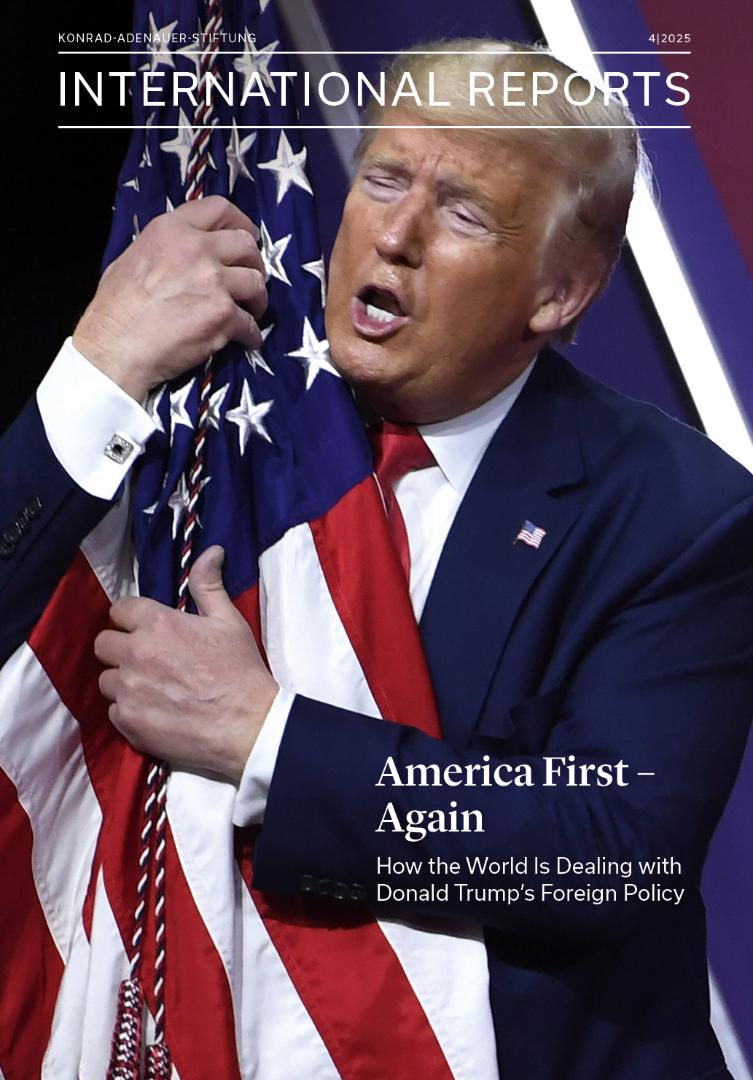America First – Again. How the World Is Dealing with Donald Trump’s Foreign Policy
Donald Trump has been back in the White House for almost a year. Many in Germany and Europe had feared this return, and they were not alone in this fear – consider Canada or Mexico, for example. But there were also those who had placed great hopes in Trump's second presidency: in the Gulf states, for example, or in Israel. What has the first year of Trump 2.0 actually brought for the different countries and regions of the world? Here is a tentative assessment.
View table of contents







